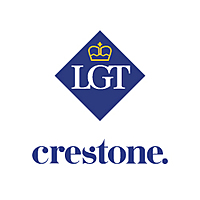Key takeaways from the brightest minds in the business
Some of the brightest economic and investment minds in the business debated the big macro-economic issues at our latest Crestone Investment Forum. Read on for insights from Jacob Mitchell, Brett Gillespie, Vimal Gor, Dr Phillipp Hofflin, Robert Mead, Dr Michael McCorry, and Stephen Halmarick. Some of the key takeaways are below, with a link to the full report at the end.
Brett Gillespie, Head of Global Macro, Ellerston Capital:
We have a reasonably upbeat view on the Australian economy. The piece most people miss is that Western Australia has effectively been in recession and is now coming back quite smartly. Western Australia has dragged 1-1.5% off Australian GDP growth in recent times. We are going to see Western Australia come back as we go into next year. We think housing will take 0.5% off growth next year, but this is more than compensated for by the pick-up in Western Australia.
Phillip Hofflin, Portfolio Manager, Australian Equities, Lazard Asset Management
Based on tax records, the $1.7 trillion of investment property in Australia loses money. There is virtually no cash flow in this enormous asset—investors are speculating on a future capital gain. Therefore, the risk may be that people’s confidence in future capital gains evaporates. If investors think the market is going down, interest rates become irrelevant.

Vimal Gor, Head of Income and Fixed Interest, BT Investment Management
High yield looks overleveraged and overvalued. In equities, the FAANGs (Facebook, Amazon, Apple, Netflix, Google) look overvalued. In Europe, the bond market looks overvalued. So, there is an unstable equilibrium where everything looks fine—but the question is—how much further can that go? Trying to call the end to it is difficult, but what we can do is try to identify the assets that will dislocate when it does end.”
Stephen Halmarick Chief Economist Colonial, First State Global Asset Management
The Fed has been saying it can get interest rates to 3%. I think the neutral rate is a lot lower. The RBA has said the neutral rate in Australia is 3.5%, which also looks too high. I think 3%—or maybe lower than that.
Robert Mead, Co-Head Of Asia Pacific Portfolio Management, Pimco
The conundrum between zero wage pressure and low productivity is that the firms investing in technology, artificial intelligence and robotics still haven’t shed their labour forces.
The Crestone view
Australia is an economy in transition. We believe the opportunity set for investors offshore is better than domestically
The areas to be exposed to
To access the full report, including the areas the panelists believed investors should build or maintain exposure to, please click here: (VIEW LINK)
8 topics
